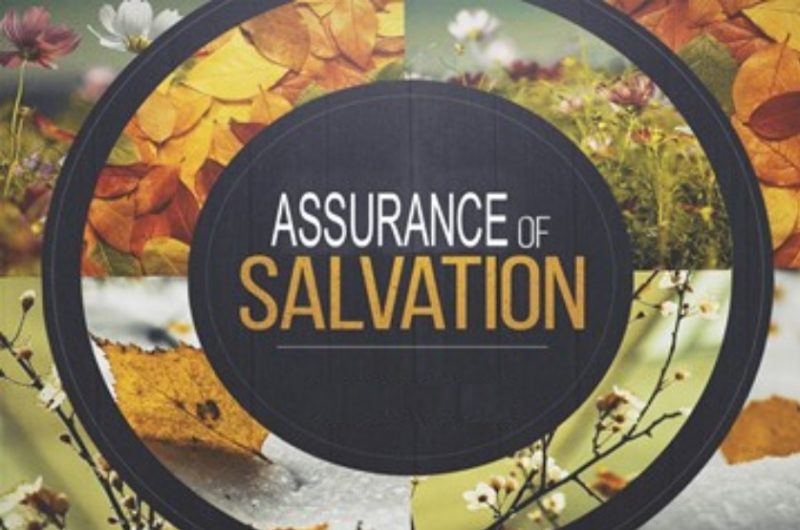Articles
Church Discipline: Six Steps

The LORD corrects those He loves and we all need correction at times, yet only if we choose to hearken, humble ourselves, be teachable, and repent, will God restore us back to Himself (Proverbs 28:13; Hebrews 12:5-12; Revelation 3:19, etc.).
“As many as I love, I rebuke and chasten: be zealous therefore, and repent.” Revelation 3:19
Pastor Steve Cornell
(Matthew 18:1-35)
When someone becomes a follower of Jesus Christ, he also becomes part of a spiritual family. He belongs, as Jesus said, to “one of these little ones which believe in me” (Matthew 18:6). “So we, being many, are one body in Christ, and every one members one of another.” (Romans 12:5: cf. I Corinthians 12:24-27). Among the followers of Christ, there is a powerful spiritual unity that overcomes social and ethnic distinctions that separate people in the larger culture.
Believers form a spiritual family of brothers and sisters in Christ. Our loyalty to Christ and to those who belong to Him is so significant that we will not allow mere earthly relationships to compromise it. It is not uncommon for those earthly relationships to become strained when a person becomes a follower of Christ. (see Matt. 10:32-37) Our love for Jesus Christ, which is demonstrated in our love for those who belong to Christ, is superior to the love we have for mere earthly relationships.
In Matthew 18:15, Jesus opens with a family reference: v. 15, “if thy brother shall trespass against thee.” “Brother” is not meant as an exclusive reference to male members of the Church. (The same teaching applies to “sisters” in Christ). It could be understood this way, “If a fellow member of the church sins….”
What should our response be when a fellow member sins? (whether “against us” or not) Should we say, “That’s his business, who am I to judge him?” No. Jesus said, “Go and show him his fault just between the two of you.” Jesus’ requirement begins with “private confrontation.” But, before this step, there needs to be “personal preparation.”
The first two steps must be followed. They are:
1. Personal preparation (see: Matthew 7:3-5)
Jesus forbids looking at the faults of others without first dealing with our own sins. Remove the log from your own eye, Jesus insists, before you notice and remove the speck from your brother’s eye. Jesus clearly encouraged involvement in other people’s lives, but only after careful self-examination. This will help facilitate the attitude described in Galatians 6:1-2.
2. Private confrontation (Matthew 18:15; cf. Lev. 9:17).
Through proper preparation, we should prayerfully and patiently desire to resolve matters at the step of private confrontation. This is where the teaching of Matthew 5:23-24 and Matthew 18:15 should merge (See below my “Two Principles for Resolving Conflicts”). Church leaders should repeatedly teach people the principles of confronting and covering in love before applying Matthew 18:15-17.
If private confrontation does not lead to true repentance and restoration, a third step is required by Jesus.
3. Private conference (Matthew 18:16; cf. Deut. 19:15; Num. 35:30; Deut. 17:6)
If the third step, “private conference” is needed, it is not merely based on the sin that originally occasioned the confrontation. Instead, it is activated because of an obstinate attitude of the one confronted (v. 16). When a sinning member of the church refuses to heed the confrontation of a fellow believer, thus refusing to be restored to proper fellowship, the circle of confrontation needs to broaden so that it includes one or two others (This is based on an O.T. principle from Deut. 19:15; Num. 35:30; Deut. 17:6). Assuming that the one who made the initial confrontation kept the matter between himself and the sinning member, whom should he enlist for this third step? “One or two more” right? Yes. But who should these people be?
* People who are spiritually prepared (Matt. 7:3-5)
* People who are spiritually mature (Gal. 6:1)
* (Perhaps, but not necessarily) People entrusted with spiritual oversight (I Pet. 5:1-4; Acts 20:28)
Nothing in the text requires that these people be eye witnesses to the sin being confronted. If they had been, they should have gone to confront. Ideally , it would be good to include people who are known and respected by the erring member (e.g. small group leaders). What is the function of the one or two others? (V. 16), “that in the mouth of two or three witnesses every word may be established.” Their purpose is not to threaten or intimidate, but to help the erring brother to understand the seriousness of the matter. They do not get involved to evaluate the truthfulness of the charge, but to strengthen the rebuke and the call to restoration. After private conference, if the erring member remains obstinate and unwilling to acknowledge and repent of the sin and be restored to proper fellowship, Jesus teaches a fourth step (3rd in the text itself).
4. Public Announcement (v. 17a)
“Tell it unto the church” (i.e. to the “ekklesia,” the assembly). This step is a sobering reminder that sin is not always a private or personal matter for a Christian. When sin separates and alienates believers, it must be dealt with and resolved. But how do we take the step of public announcement? This might depend on the size of the church. In our church (500+ people), it would be communicated to the covenant members through a special meeting of the membership. These meetings would be precipitated by a letter to the members emphasizing that an urgent matter must be addressed. It is wise to make public discipline announcements at a service that includes communion. This helps the entire body remember that we all need the Savior and His forgiveness. It also helps to protect the body from a sinful pride (Gal. 6:1-2). Further, it affords opportunity for congregational instruction about repentance and restoration.
It is important for churches to specifically outline these steps in their constitutions to avoid law suits. Churches have been sued for following Matt. 18 and have lost in court, because they lacked specific reference to the steps in their official documents. (Note: It is not enough to say, “We follow the bible.”) Churches are wise to limit the public announcement to those who are actual members. Discipline of non-members is sticky territory. This is another reason why most churches need to become more intentional about membership (see: Membership Matters, Chuck Lawless, Zondervan).
5. Public confrontation (v. 17b),
This implies that the church (as an assembly) has made an appeal to the erring member. When the church is informed, it seems to imply that the pastors will be involved. And when this happens, it should be accompanied by warnings about the need to avoid:
* Gossip and slander
* A proud, critical spirit (Mattt. 7:3-5; Gal. 6:1)
* A lenient or punitive attitude
* Playing spiritual detective
People should be encouraged to pray for repentance and restoration. They should also call the brother or sister to make things right by responding in a godly manner. For those uncertain what to say, we recommend that they say, “I don’t know all the details, nor is it my place, but I do want to encourage you to make things right with the church.”
No one should give this brother the feeling that everything is fine (cf. II Thess. 3:12-14). Don’t act in cross purpose with the church. This would be disrespectful to the Church. Remember the goal, “Gain/Win thy brother.” It is redemptive! We should long for and pray for true repentance. True repentance is described in II Corinthians 7:10-12: ““For godly sorrow worketh repentance to salvation not to be repented of: but the sorrow of the world worketh death. 11For behold this selfsame thing, that ye sorrowed after a godly sort, what carefulness it wrought in you, yea, what clearing of yourselves, yea, what indignation, yea, what fear, yea, what vehement desire, yea, what zeal, yea, what revenge! In all things ye have approved yourselves to be clear in this matter. 12Wherefore, though I wrote unto you, I did it not for his cause that had done the wrong, nor for his cause that suffered wrong, but that our care for you in the sight of God might appear unto you.”
If true repentance becomes clear, the goal is restoration. This is described in: II Corinthians 2:6-8: “Sufficient to such a man is this punishment, which was inflicted of many. 7So that contrariwise ye ought rather to forgive him, and comfort him, lest perhaps such a one should be swallowed up with overmuch sorrow. 8Wherefore I beseech you that ye would confirm your love toward him.”
6. Public exclusion (v. 17c)
When the sixth step becomes necessary, the focus shifts from the individual to protection of the Church. The emphasis moves from redemptive to judicial. This decision protects the unity and purity of the Church but it is also best for the individual.
This final step is powerfully illustrated in I Corinthians 5.
Steve Cornell
When a Brother Stumbles
Church discipline serves to bring the transgressor to repentance and restore his faith in God.
Do you want to get deeper into God’s Word? If so, send a reply requesting the “Moments with My Master” email that is sent out to edify Christ’s body. Sign up Here.
-

 America3 years ago
America3 years agoThe Drugging of America: The Pharmakeia Sorcery Deception [podcast]
-

 Articles3 months ago
Articles3 months agoChildren being Rescued in Tunnels: Happening Now – UPDATE!
-

 Articles6 years ago
Articles6 years agoSelf-Examination in Preparation for the Lord’s Return
-

 Apostasy3 months ago
Apostasy3 months agoSHOCKING List of False Prophets Most Believe are True





































